- Overview
- Alcohol Use Disorder
- Opioid Use Disorder
- Cannabis Use Disorder
- Prescription Drug Abuse
- Other Abused Substances
- Non-Substance Addictions
- View Full Guide
How Drinking Alcohol Affects Your Skin

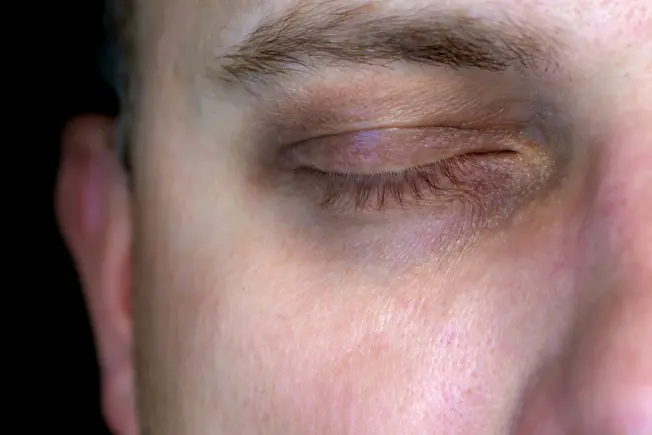
Dark Circles
Alcohol might make you drowsy and help you fall asleep faster, but you may not stay that way. It breaks up your normal sleep rhythms and can make you restless throughout the night. That often leads to dark circles under your eyes. Cold compresses should help, but the best answer is a good night’s sleep. Try to get at least 7 hours a night.
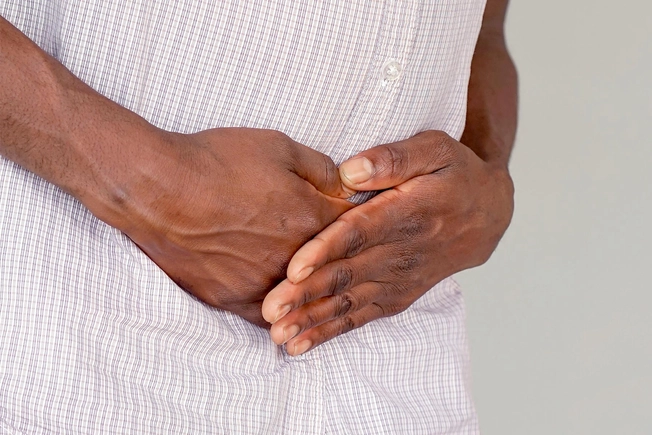
Puffiness and Bloating
A night of drinking might make you feel swollen all over. Alcohol dehydrates your body, which could make your eyes puffy. Be sure to drink plenty of water during the day to stay hydrated. Alcohol also can irritate your stomach lining. That may lead to a swollen, bloated belly. The solution: Drink less booze, more water, and try an over-the-counter bloating remedy.
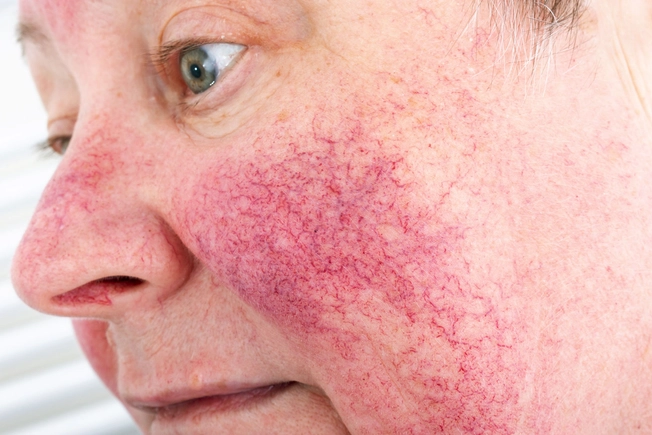
Rosacea
If your face flushes when you drink, you may have some degree of rosacea. This common skin condition causes your face -- especially your cheeks, nose, chin, and forehead -- to turn red. Drinking alcohol can sometimes trigger a rosacea flare. Some studies show alcohol might raise your odds of getting rosacea if you don’t already have it.

Rosy Cheeks
An enzyme issue can turn your cheeks rosy after you drink. ALDH2 is the enzyme that breaks down alcohol’s toxic compound. When it isn’t working right, the toxins stay in your cells, which leads to warmth and flushing. It’s a genetic issue that’s more likely to affect people from Asian backgrounds.
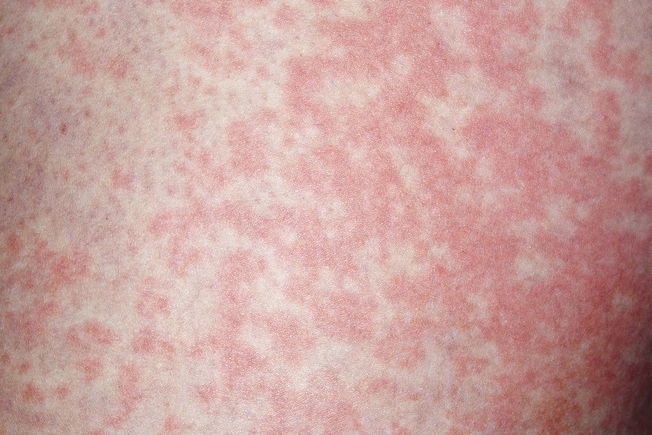
Hives
These red, itchy skin bumps might show up when you drink. They can affect just one body part or pop up all over. Sometimes they’re a symptom of alcohol intolerance, meaning your body can’t break down alcohol well. They may also result from an allergic reaction to an ingredient in alcohol. Hives could last a few minutes or a few days. Treat them with cool compresses and over-the-counter antihistamines.
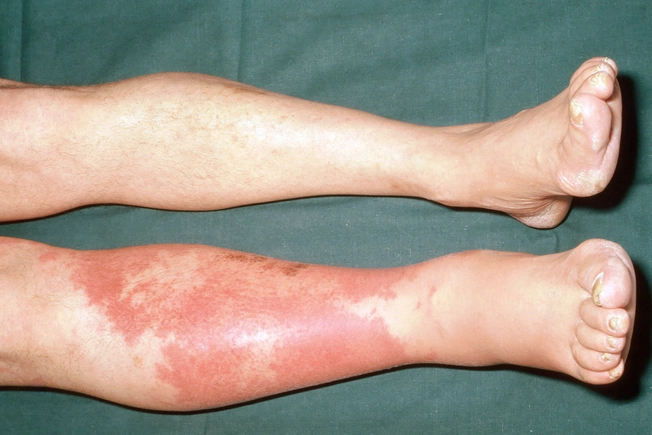
Cellulitis
Heavy drinking can make you more likely to get cellulitis, a bacterial skin infection that usually affects your lower legs. It makes the skin there red, swollen, painful, and warm to the touch. The bacteria get into your body through a cut or wound in your skin. The infection is often serious. You’ll need to treat it with antibiotics.
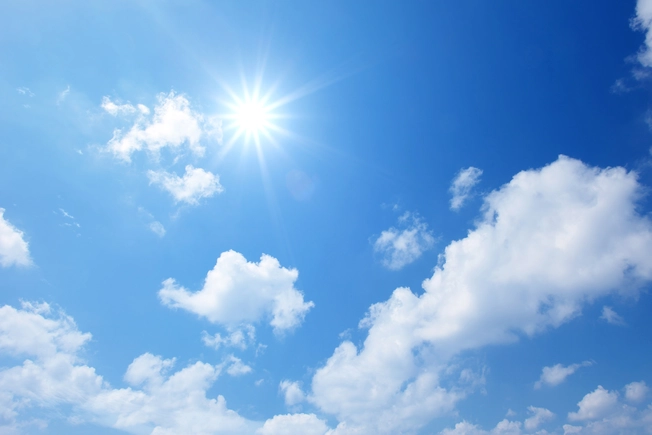
Sun Sensitivity
For some people, sunlight causes extreme burning, blisters, and pain. This problem is often passed down in families, but alcohol use can also trigger it. Your skin may wound easily, itch, and turn red when you’re in the sun. To ease your symptoms, stop drinking and avoid direct sunlight.
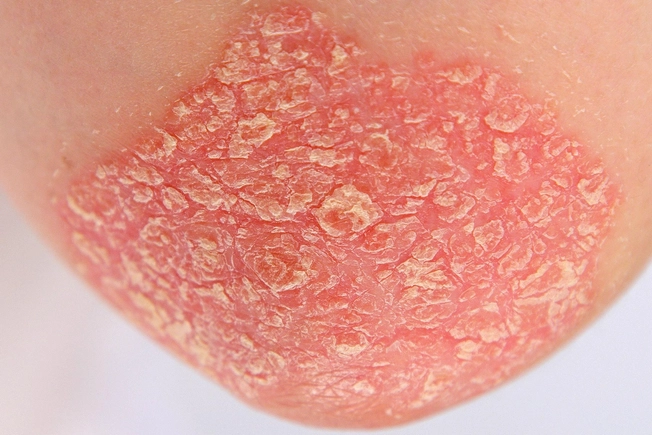
Psoriasis
Regular heavy drinking can trigger psoriasis -- a condition where skin cells build up and make dry, itchy patches. It could also make an outbreak worse, especially in men. Alcohol doesn’t mix well with psoriasis treatments, either. It may make it harder for some to do their job, and it could be dangerous when mixed with others.
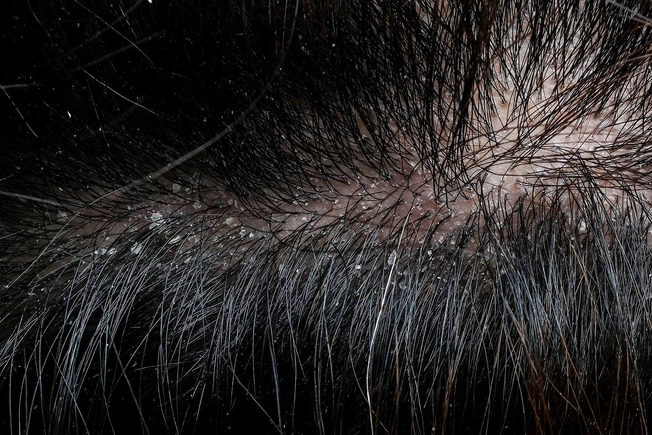
Dandruff
You might notice dandruff on your scalp or itchy patches of greasy skin on other body parts. Doctors call this skin disease seborrheic dermatitis, and it’s often a sign of immune system problems or a yeast in the body. For some people, drinking alcohol can trigger a flare-up. Over-the-counter shampoos are a good first treatment option, but you may need a prescription remedy.
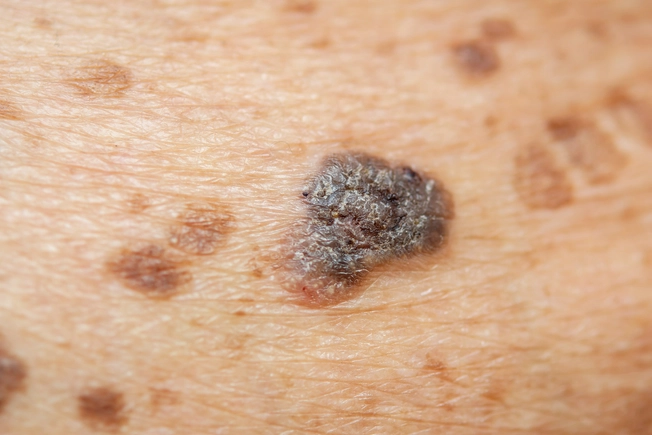
Skin Cancer
Drinking alcohol is linked to cancer of the mouth, throat, voice box, and esophagus. Research shows alcohol use also may be tied to the most common types of skin cancer. Your body works to repair DNA damage caused by the sun, but alcohol can interfere with that process.
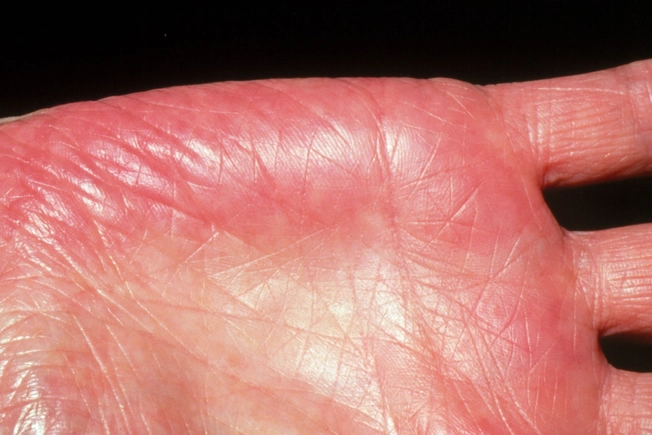
Red Palms
It’s rare, but the palms of your hands -- and maybe the soles of your feet -- might turn red for no reason. They won’t hurt or itch. It can be genetic, but it could also result from medication, liver disease, or heavy alcohol use. There’s no cure for the redness. To ease symptoms, cut back on your drinking or treat the underlying disease.
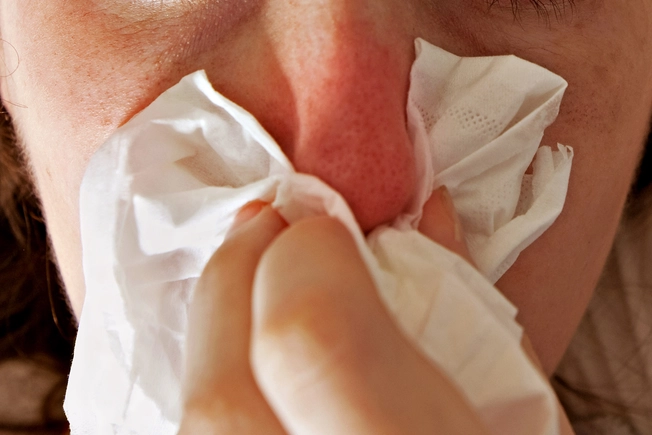
Runny, Red Nose
Your nose might get red and stuffy or runny when you have a beer or a glass of wine. This allergy-like reaction usually happens within an hour of drinking. It’s common in people who also have asthma, sinus disease, or problems with aspirin and other nonsteroidal anti-inflammatory drugs (NSAIDs). Your doctor can help by slowly getting you used to aspirin, which should ease your symptoms.